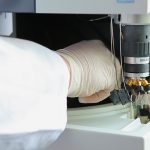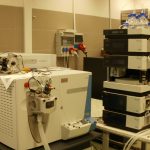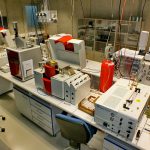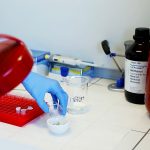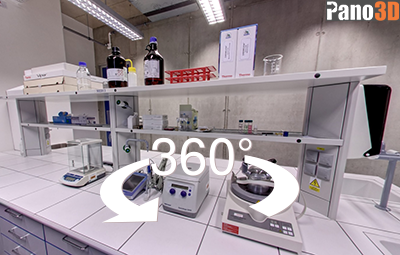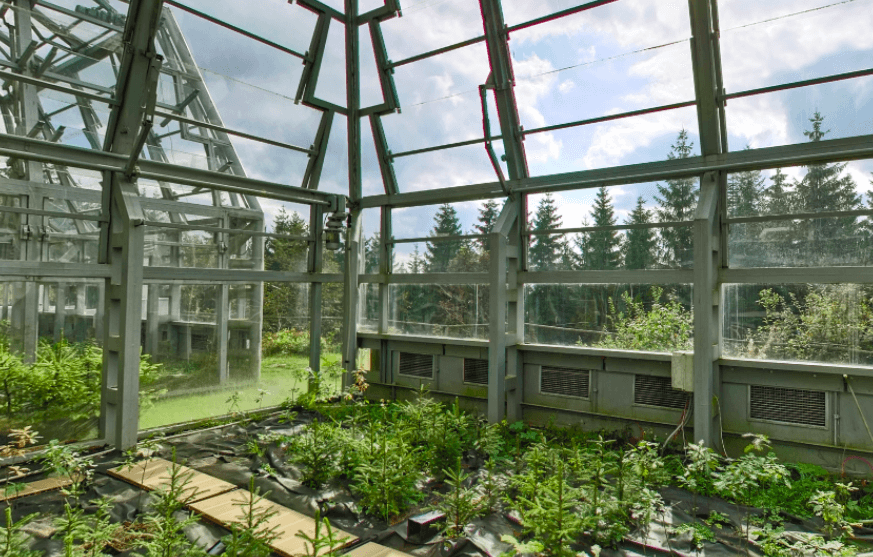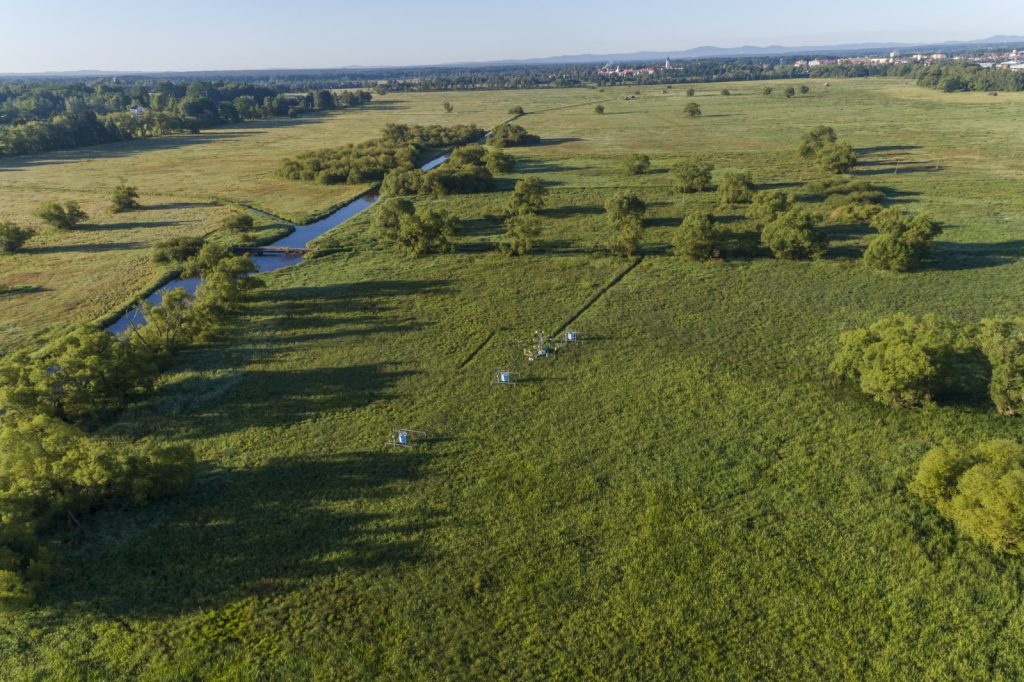prof. Ing. Jan Tříska, CSc. – head
Scientists:
prof. Ing. Josef Čáslavský, CSc.
Ing. Michaela Fajkus
Mgr. Michal Oravec, Ph.D.
RNDr. Naděžda Vrchotová, CSc.
Others:
Mgr. Jan Bednář
Hana Hanušová
Bc. Ing, Kateřina Hořejší
The biochemical profile of plants, which is studied within the filed of metabolomics, is the result of interaction between genotype, environment and regulatory mechanisms, and thus it creates a unique biochemical “fingerprint” of the growth environment in plants. Environmental metabolomics comprise a relatively new research direction which allows us, for example, to identify the effect of environmental stress on plants and/or whole ecosystems and to understand the internal (molecular) mechanisms for how plants respond to external stimuli (response), how they adapt to changes in growth conditions (adaptability, plasticity), and how functional stability (robustness) is formed in plants.
The laboratory’s main objectives are:
a) using chromatographic techniques in conjunction with mass spectrometry, to comprehensively analyse, identify and quantify metabolites in plants and soils (rhizosphere) in order to describe the overall metabolomes of selected plants and the rhizosphere (broad-spectrum screening of metabolic profile);
b) to describe changes in the metabolic profile of plants when exposed to environmental stresses;
c) to find functional links between the metabolic profile of plants and their physiological (e.g. photosynthesis) and phenological (e.g. growth) properties;
d) to detect stable isotopes ratios in the soil–plant–atmosphere system and in individual selected metabolites; and
e) to identify the main metabolic pathways involved in the physiological adaptation of plants to the effects of global change and the formation of their functional stability.
To fulfil these objectives, the following key instrumentation will be used:
a) high-pressure liquid chromatography with mass spectrometry (HPLC–MS) for broad-spectrum screening of metabolites (non-target analyses) and analysis of selected metabolite groups (target analysis);
b) gas chromatography with mass spectrometry (GC–MS) for the detection of volatile and easily derived metabolites, complemented with a thermogravimetric analyser to study the dynamics of the carbon cycle in soils; and
c) isotope-ratio mass spectrometry (irMS) coupled with gas and liquid chromatography for the detection of stable isotope ratios (13C/12C, 15N/14N, 34S/32S, D/H, 18O/16O) in gaseous and solid samples of the soil–plant–atmosphere system and isotope ratios in individual selected metabolites.
Photogallery:

